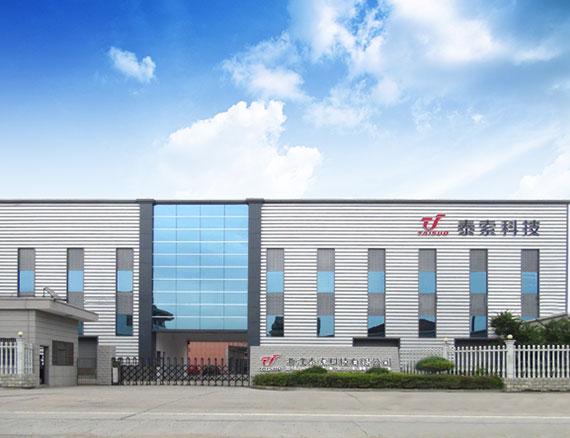Sensors Connector Manufacturers
Technology
Application
Certificate
- UL Certificate -KSOT2.E89693-Heater, Specialty-Assemblies
- UL Certificate -KSOT8.E89693-Heater, Canadian Specialty-Assemblies
- Specification S-311-P-079: Purchase Specification for Thermofoil™ Heaters
- Specification EN60335-1: Standard for the safety of electrical appliances for household and similar appliances. Part 1: General requirements
Related Products
Looking for solutions?
We can provide a complete thermal management solution to solve all your problems in one stop.

About Us
TAISUO Technology was founded in 1992, and is a professional Sensors Connector Manufacturers and Sensors Connector Factory, A new professional invisible champion enterprise dedicated to the research and development, production, sales and service of thermal management technology. It has been focusing on the industry for 30 years. Taisuo has dozens of utility model and invention patents. The company has professional and rare technical control in the field of temperature and thermal management, such as "heating and cooling, temperature sensing, transmission control, special signal processing" and other multi-dimensional technical challenges, which can be used for auto parts, energy, petroleum, military industry, thermoelectricity , chemical industry, nuclear power, medicine and other industries to solve technical problems of temperature control equipment. We specialize in custom Sensors Connector etc.
As a long-term cooperative supplier, Teso Technology has gradually spread its footprints all over the world and has continuously refreshed its transformation goals in industry segments, becoming a leading company in the temperature and thermal management segment.
Patent
-
 A multi-point oil well temperature sensor
A multi-point oil well temperature sensor -
 An integrated oil well heating cable with continuous monitoring
An integrated oil well heating cable with continuous monitoring -
 An armored cable integrating heating and movable armored thermocouples
An armored cable integrating heating and movable armored thermocouples -
 A high temperature resistant integrated underground heating cable
A high temperature resistant integrated underground heating cable -
 A heating cable with variable power in the length direction and a three-phase integrated heating cable
A heating cable with variable power in the length direction and a three-phase integrated heating cable -
 Automatic correction device for pipe forming
Automatic correction device for pipe forming -
 A multi-point temperature measurement oil well heating cable
A multi-point temperature measurement oil well heating cable -
 A multi-point oil well temperature sensor
A multi-point oil well temperature sensor -
 A convenient thermocouple calibration polarity extension connector
A convenient thermocouple calibration polarity extension connector -
 A workpiece transmission photoelectric detection signal stabilizer
A workpiece transmission photoelectric detection signal stabilizer -
 Explosion-proof tank liquid level intelligent detection control alarm device
Explosion-proof tank liquid level intelligent detection control alarm device -
 High temperature corrosion resistant armored temperature measuring cable
High temperature corrosion resistant armored temperature measuring cable
Industry Certification
-
 Zhejiang Province Small and Medium-sized Science and Technology Enterprise Certificate
Zhejiang Province Small and Medium-sized Science and Technology Enterprise Certificate -
 Yuyao Engineering Technology Center Approval Document
Yuyao Engineering Technology Center Approval Document -
 Teso thyristor voltage regulator control software copyright registration certificate
Teso thyristor voltage regulator control software copyright registration certificate -
 Quality management system certification
Quality management system certification -
 Certificate of conformity
Certificate of conformity -
 Production certification certificates for armored cables, temperature sensors, and heat-resistant pipe midsections
Production certification certificates for armored cables, temperature sensors, and heat-resistant pipe midsections -
 Market share ranking in 2022
Market share ranking in 2022 -
 High-tech Enterprise Certificate
High-tech Enterprise Certificate -
 environmental management system certification
environmental management system certification -
 Occupational Health and Safety Management System Certification Certificate
Occupational Health and Safety Management System Certification Certificate -
 Carbon fiber composite material testing report
Carbon fiber composite material testing report
News Center
-
News 2025-01-17
How does the 171 series thermocouple sensor work based on the Seebeck effectThe working principle of thermocouples is based on the...
Read more -
News 2025-01-10
1 Efficient heating: As a new professional hidden champion enterprise focusing on the research and development, production, sales ...
Read more -
News 2025-01-03
1. Voltage signal outputVoltage signal output is the most commonly used signal output method for thermocouples. Thermocouples meas...
Read more -
News 2024-12-27
1. The structure and size of thermocouplesThe diameter of the thermocouple and the protective tube: The thicker the diameter of th...
Read more

 English
English русский
русский 简体中文
简体中文



 Ins: tai_suo
Ins: tai_suo

